Israel carried out new airstrikes Wednesday in the Gaza Strip, while the Israeli army said it was on high alert for attacks by the Lebanese militant group Hezbollah, following a drone strike that killed a senior Hamas official in Beirut.
Hamas and security officials in the region attributed the strike that killed Saleh al-Arouri to an Israeli drone, although Israel has not directly acknowledged responsibility.
The chief of Israel’s Mossad intelligence service said Wednesday the agency would hunt down every Hamas member involved in the October 7 attack on Israel, no matter where they are.
David Barnea, Mossad’s head, made a comparison to the aftermath of the 1972 Munich massacre when Mossad agents tracked down and killed a string of Palestinian militants who had killed 11 Israeli athletes at that year’s Olympic Games.
Speaking at the funeral of former Mossad head Zvi Zamir, Israel’s spy chief at the time of the Munich attack, Barnea said Israel would pursue everyone involved, “directly or indirectly,” including “planners and envoys,” involved in the shock attack nearly three months ago that killed about 1,200 people in southern Israel and allowed Hamas to capture about 240 hostages.
“It’ll take time, as it took time after the Munich massacre, but we will put our hands on them wherever they are,” Barnea said.
Hezbollah — like Hamas, an Iran-backed militant group designated as a terror organization by the United States — has been firing rockets across Israel’s northern border since the Israel-Hamas war broke out in October.
In a televised speech Wednesday, Hezbollah leader Hassan Nasrallah warned Israel against attacking Lebanon.
“If the enemy thinks of waging a war on Lebanon, we will fight without restraint, without rules, without limits and without restrictions,” Nasrallah said.
Arouri was a senior official in Hamas’ politburo and one of the founders of its military wing, the Qassam Brigades, that carried out the deadly shock assault in Israeli territory on October 7. The United States last year offered $5 million for information on him as part of its Rewards for Justice program.
The Israeli military declined to comment on Arouri’s reported death, but such an attack would be in line with Jerusalem’s avowed intent to kill key Hamas leaders as the war with Hamas in Gaza nears the three-month mark.
“The most important thing to say tonight is that we are focused and remain focused on fighting Hamas,” Israeli military spokesperson Rear Admiral Daniel Hagari said when asked about Arouri’s killing.
Arouri headed the Hamas presence in the Israeli-occupied West Bank. Israeli Prime Minister Benjamin Netanyahu had threatened to kill him even before the militant group invaded southern Israel in the October attack.
Lebanon’s state news agency reported that four people were killed in the attack on the Hamas offices in a crowded neighborhood in the southern suburbs of the Lebanese capital.
In a statement, Hezbollah said, “this crime will not go unanswered or unpunished,” calling it a “dangerous development in the course of the war.”
Israel has warned that if Hezbollah does not back down, a full-on Lebanon war looms. Both Hamas and Hezbollah are backed by Iran, whose militant allies in Syria, Iraq and Yemen have also been carrying out longer-range attacks against Israel.
European Union foreign policy chief Josep Borrell said Wednesday the international community must “impose” a solution to the conflict between the Israelis and the Palestinians.
“What we have learned over the last 30 years, and what we are learning now with the tragedy experienced in Gaza, is that the solution must be imposed from outside,” Borrell told diplomats in Portugal.
“Peace will only be achieved in a lasting manner if the international community gets involved intensely to achieve it and imposes a solution,” he said, pointing to the United States, Europe and Arab countries.
Borrell warned that the strike in Beirut that killed Arouri was “an additional factor that can cause an escalation of the conflict.”
Post-war governance
Hamas chief Ismail Haniyeh said Tuesday in a televised address that he is open to a single Palestinian administration to govern war-ravaged Gaza, which has been ruled by Hamas, and the Israeli-occupied West Bank, where the Palestinian Authority runs some government operations.
Haniyeh’s position is similar to that of the United States, which favors eventual control of Gaza and the West Bank by the Palestinian Authority, a stance opposed by Netanyahu. The Israeli leader says the Jewish state must control “overall security” in Gaza after the war but left unclear exactly what that would entail.
The United States has stressed that Palestinians must be part of any postwar administration, but the future role of the internationally recognized Palestinian Authority remains unclear.
The Israeli campaign to crush Hamas has left vast parts of the Gaza Strip in ruins. The Health Ministry in Hamas-ruled Gaza said the Israeli offensive has killed more than 22,000 people. The ministry does not differentiate between militants and civilians but says 70% of those killed were women and children.
Israel launched its offensive after the October 7 attack when Israel said about 1,200 people were killed and some 240 captives taken hostage, with 129 believed still held by Hamas or other militants in Gaza. The Israeli military said 174 of its military personnel have been killed so far in the fighting.
Hamas has been designated a terrorist organization by the United States, the United Kingdom, the European Union and others.
About 85% of Gaza’s 2.3 million people have been displaced, according to the United Nations. The U.N. has warned of the increased risk of hunger and disease, as desperate families shelter in makeshift tents against the winter cold.
The U.N. Office for the Coordination of Humanitarian Affairs said Rafah governate, located in southern Gaza next to the Egyptian border, is the main refuge for those who have been displaced by intensified fighting and Israeli evacuation orders. There are more than one million people there, “squeezed into an extremely overcrowded space,” the U.N. said.
VOA


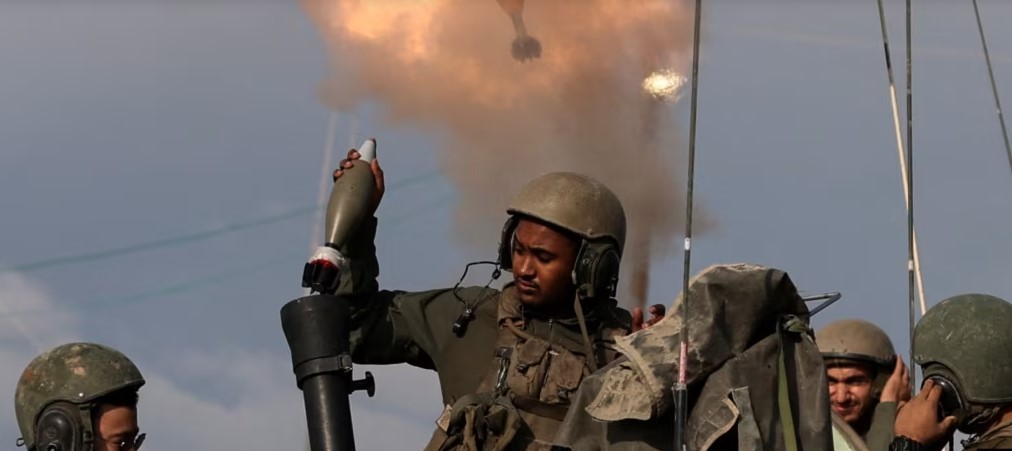
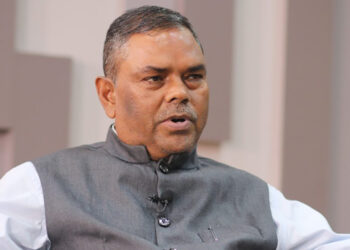
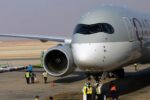
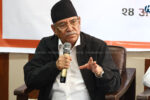

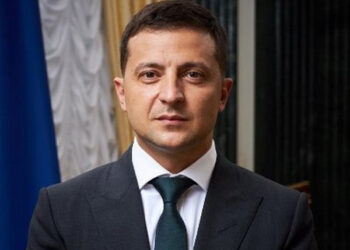

Comment